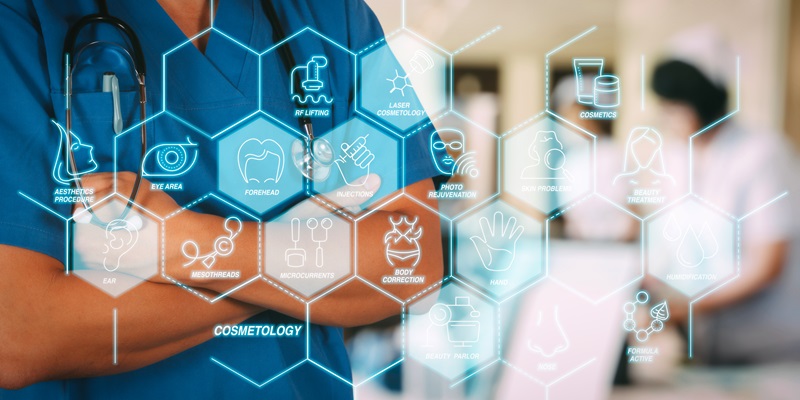The field of medicine stands at the cusp of a revolution, one driven by the rapid advancements in artificial intelligence (AI). Coupled with the upcoming “Workstyle Reform” initiative scheduled to limit doctors’ annual overtime to 960 hours starting from April 2024, the integration of AI into healthcare has sparked both hope and concern. While the promise of enhanced diagnostic accuracy, personalized patient care, and the alleviation of doctors’ workload is enticing, it also brings critical ethical and practical challenges that need thorough examination.
The Promise of AI in Enhancing Diagnostic Accuracy
Bridging Gaps in Healthcare
AI’s first significant contribution to healthcare is its ability to bridge gaps between healthcare providers and patients. Leveraging data analysis and machine learning, AI systems can analyze massive datasets, identifying patterns and anomalies that might escape the human eye. This prowess not only aids in quicker, more accurate diagnoses but also personalizes treatment plans, ultimately leading to better patient outcomes. For example, AI algorithms can analyze diagnostic images with such precision that they can detect early signs of diseases like cancer, outpacing traditional methods.
The integration of AI ensures that healthcare is more accessible and efficient. Consider telemedicine, for instance. With AI-driven tools, remote consultations can offer precise diagnostics and treatment recommendations, minimizing the need for in-person visits. Physicians can manage more cases efficiently, even in regions with limited medical facilities. This practical application of AI can be transformative, especially during times of increased healthcare demand, such as during a pandemic.
Enhancing Efficiency Through Data Analysis
Moreover, AI’s capability to process data at unprecedented speeds can free up doctors’ time, allowing them to focus on complex cases that require human judgment and expertise. In essence, AI can handle the bulk of routine tasks that consume much of the doctors’ working hours. Electronic Health Records (EHRs) powered by AI can automatically update, retrieve, and analyze patient data, streamlining administrative tasks to significantly reduce doctors’ administrative burdens.
Not only does this efficiency improve workflow, but it also minimizes errors caused by fatigue and human oversight. This method enables physicians to dedicate more time to patient care and complex decision-making, enhancing overall healthcare quality. The shift from manual to automated systems could thus transform the conventional healthcare model, making services faster and more reliable.
Ethical and Practical Challenges
Ethical Quandaries in AI-Driven Decision Making
Despite the promising advantages, the ethical implications of integrating AI into medical decision-making are significant and cannot be overlooked. One major concern revolves around the delegation of critical healthcare decisions to algorithms. These decisions are traditionally considered the domain of human expertise and ethical judgment. Entrusting such responsibilities to AI systems can provoke anxiety about the erosion of patient trust and the potential for moral lapses.
The ethical quandaries are further compounded by the risk of bias ingrained in AI algorithms. AI systems are only as unbiased as the data they are trained on. If the training data contains biases, these biases will perpetuate in the AI’s decision-making processes. Ensuring that AI systems adhere to the highest ethical standards involves not only diligent oversight but also constant updates and audits to rectify any emerging biases.
Data Privacy and Security Concerns
Another pressing issue is the concern over data privacy and security. AI systems necessitate vast amounts of health data to function optimally, raising concerns over how this data is stored, accessed, and utilized. Ensuring patient confidentiality while maximizing the utility of AI in healthcare requires robust data encryption methods and stringent access controls.
Cybersecurity measures must be heightened to protect sensitive health information from hackers and unauthorized access, an ever-increasing threat in our digitally connected world. The risk of data breaches makes it imperative for healthcare institutions to adopt rigorous security protocols, ensuring that advancements in AI do not come at the cost of patient privacy.
Balancing AI Integration with Human Expertise
Cautious Optimism and Human Oversight
Overall trends indicate a cautiously optimistic view regarding AI’s role within the medical sector. According to a survey involving 676 medical professionals, there is a growing consensus that AI has the potential to revolutionize healthcare while augmenting rather than replacing the human touch. This sentiment emphasizes the need for human expertise to remain integral, ensuring that AI applications are continually vetted and guided by ethical principles.
Maintaining human oversight in AI applications ensures that algorithms serve as supportive tools rather than authoritative decision-makers. Physicians can leverage AI’s capabilities for faster, more precise diagnostics, but the final judgment should always rest with the human practitioner. This equilibrium between technology and human expertise helps preserve the relational and ethical core of medical practice.
Training and Education for Future Integration
Medicine is on the brink of a transformative era, propelled by rapid advancements in artificial intelligence (AI). This development, paired with the forthcoming “Workstyle Reform” set to cap doctors’ annual overtime at 960 hours starting in April 2024, has created a mix of optimism and apprehension. AI promises to revolutionize healthcare by enhancing diagnostic precision, enabling personalized patient treatment plans, and lightening the workloads of medical professionals. However, this technological leap comes with significant ethical and practical hurdles that warrant careful examination. Concerns range from the reliability of AI-driven diagnostics to issues of patient privacy and data security. There is also the question of how AI will work alongside human doctors, potentially reshaping the nature of medical training and professional responsibilities. As AI begins to carve out its role in healthcare, a balanced approach that addresses these challenges while harnessing its benefits is essential for advancing medical practice responsibly.

